1. Stem the flow of heavy bleeding by applying pressure
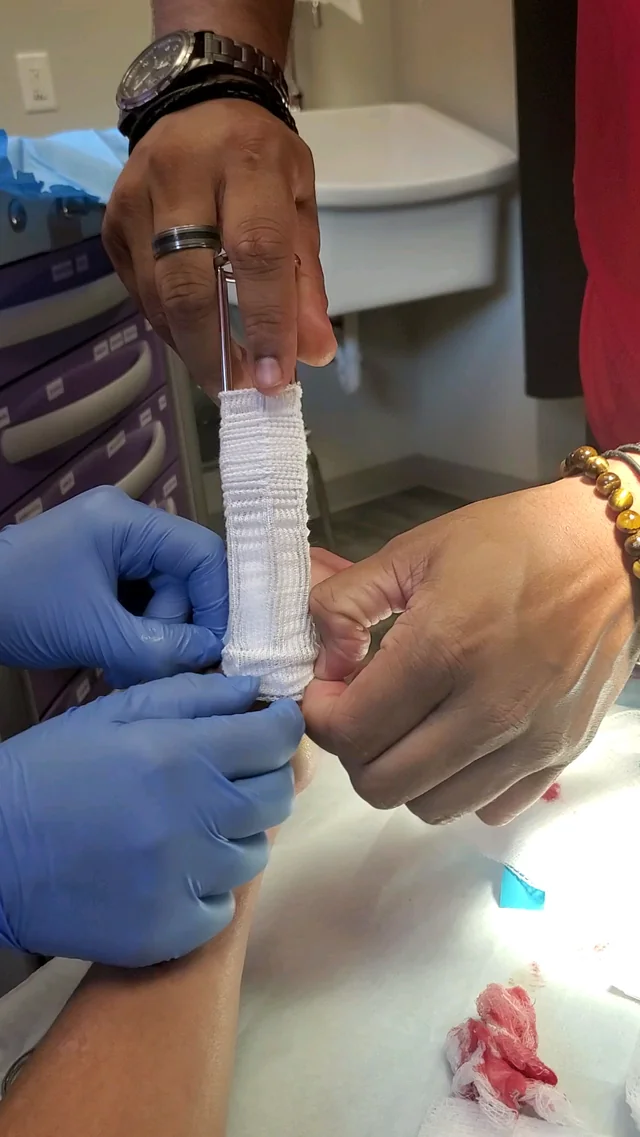
(Image/ Source: reddit.com)
Okay, so not everyone is good at dealing with blood (including us!). But if you’re in an emergency situation where someone is in danger, you’ll need to step up... Apply slight pressure to the area that’s bleeding, and use something like fabric or a towel to soak up the blood.
2. If someone is unconscious, use ABC (Airway, Breathing, Circulation)

(Image/ Source: metrosafety.ca)
If someone's unconscious, keep calm and focus on the ABC. Check if the airways are open; if not, use one hand to tilt their head back, and use your other hand to lift their chin. You should then check they are breathing, and assess their circulation - are they bleeding too?
3. Put wet clothing on burns and scalds - this minimizes damage
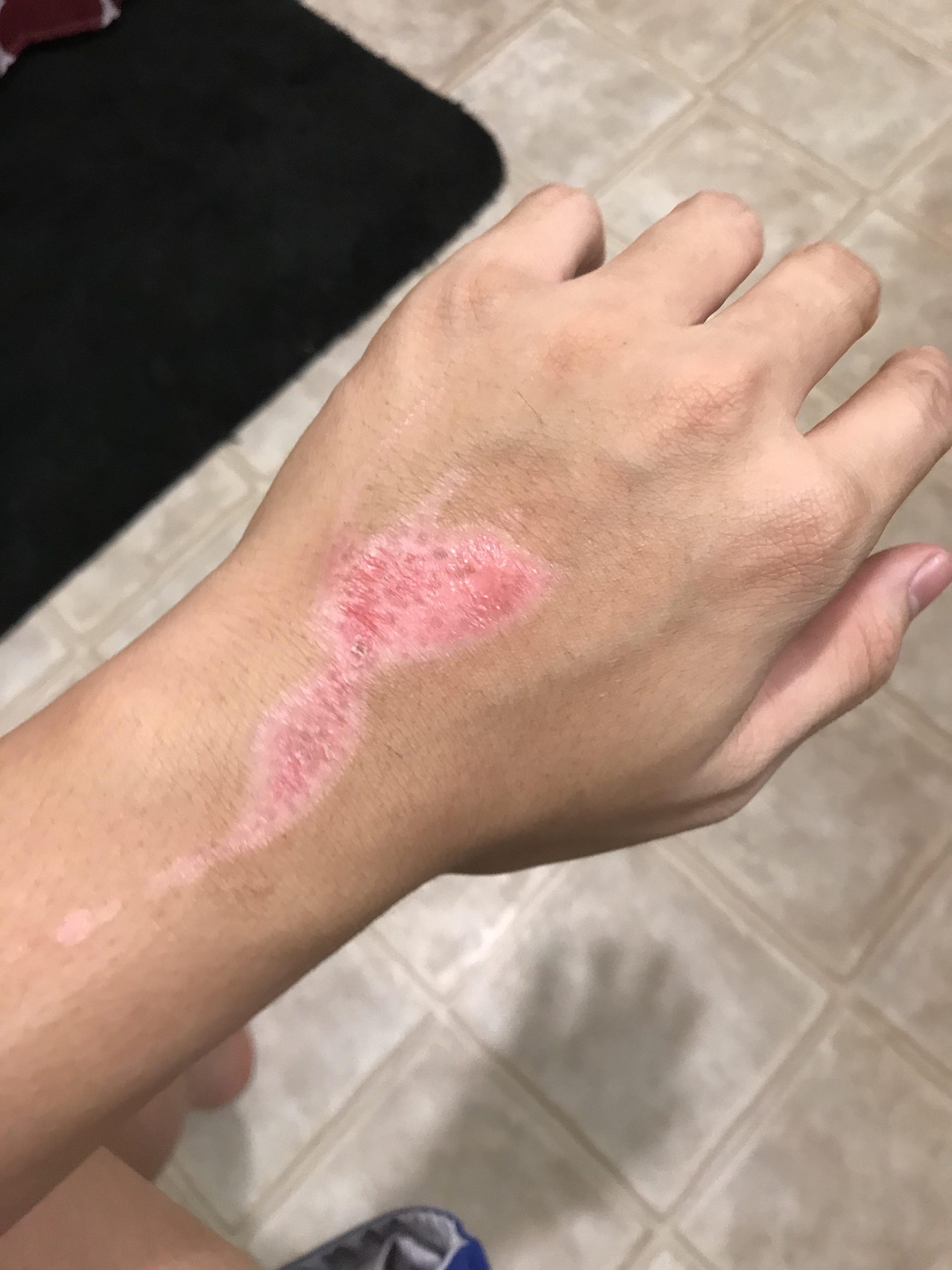
(Image/ Source: reddit.com)
It’s really good to know what to do when someone gets a bad burn or scald. Place some wet clothing on the area that’s been affected, which stops the burning process on the skin. And there’s one super important thing to remember; DON’T put ice on a burn, as it can cause serious tissue damage.
4. Administer CPR (cardiopulmonary resuscitation) when someone's heart stops beating
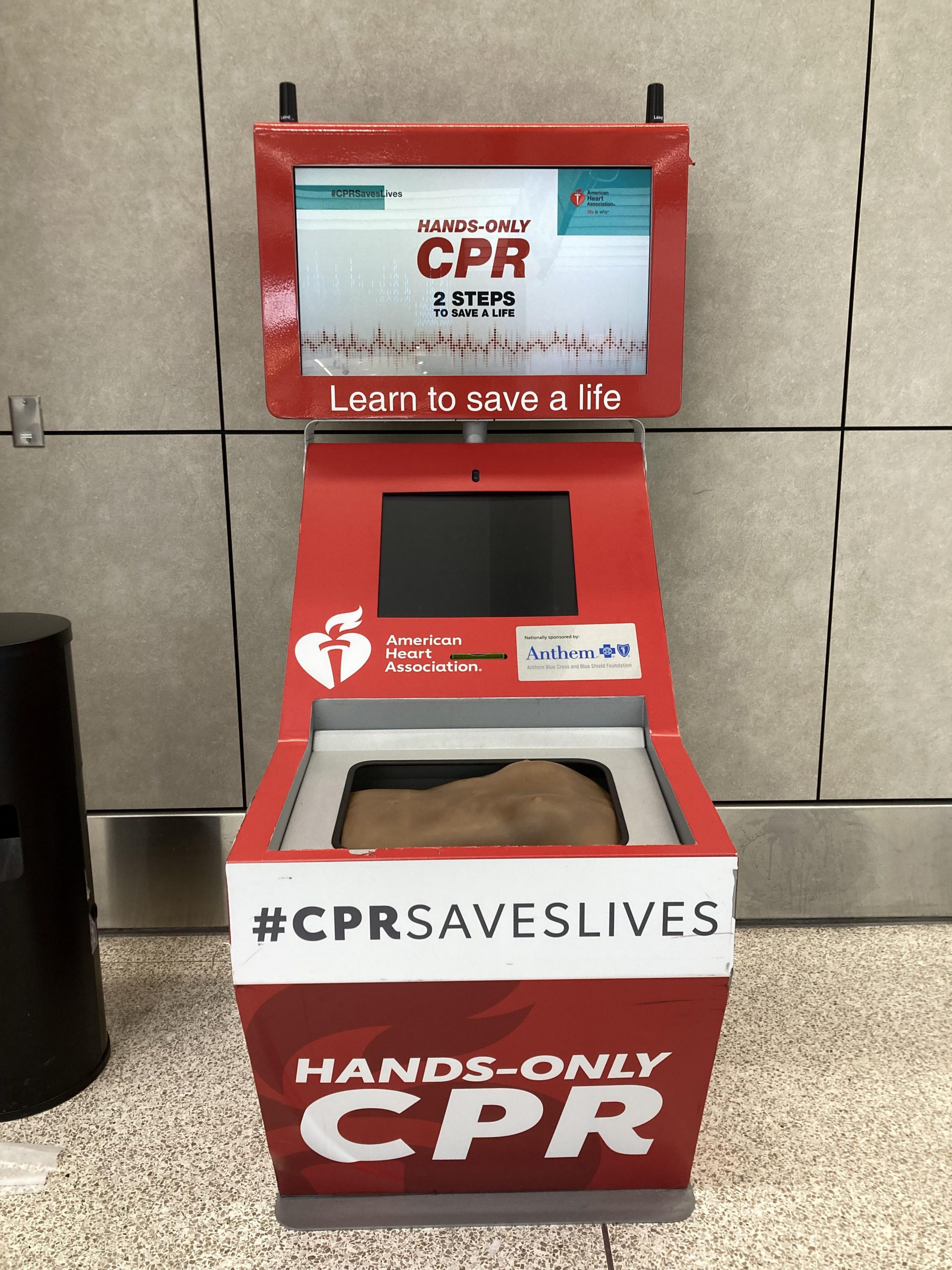
(Image/ Source: reddit.com)
Did you know someone can get brain injury if CPR isn’t performed on them within 2-3 minutes of their heart stopping? This means a person can have their life ruined forever if someone can't help in time. You can get some CPR training to learn how to do this properly.
5. The Heimlich Maneuver can stop someone from choking
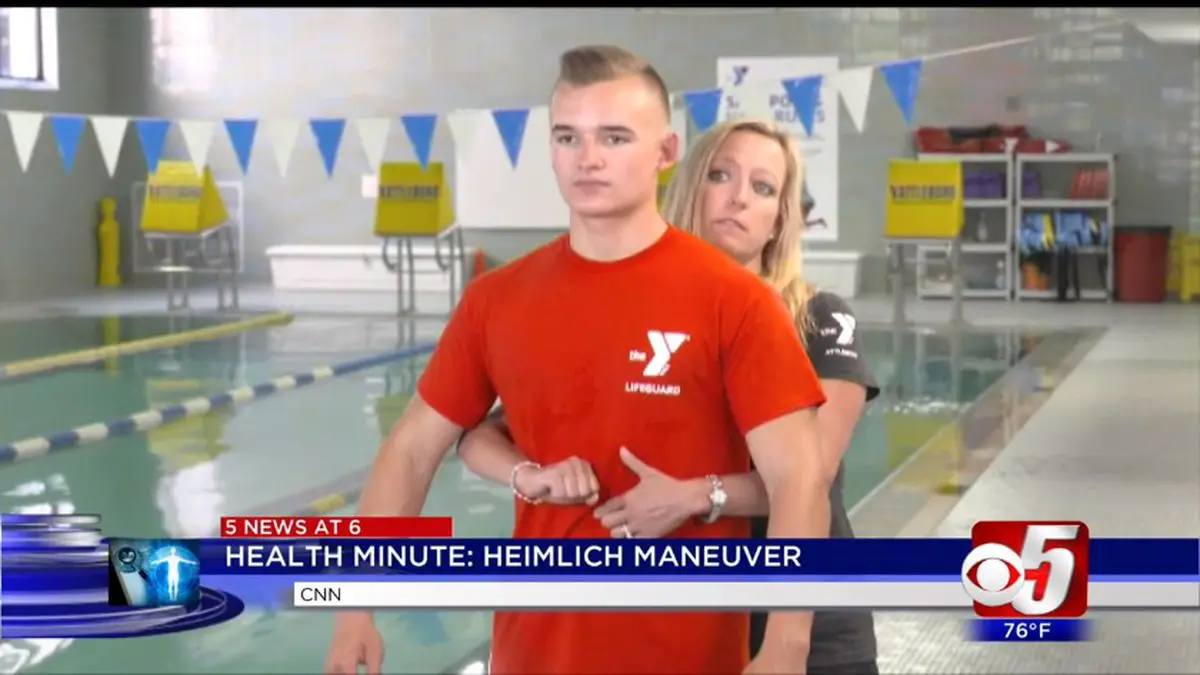
(Image/ Source: wdtv.com)
Have you ever seen someone use the Heimlich Maneuver? It basically stops someone from choking by dislodging the item that’s stuck in the person’s throat. Learning how to give these abdominal thrusts safely might well end up saving someone’s life one day.
6. But you should use a different approach for babies
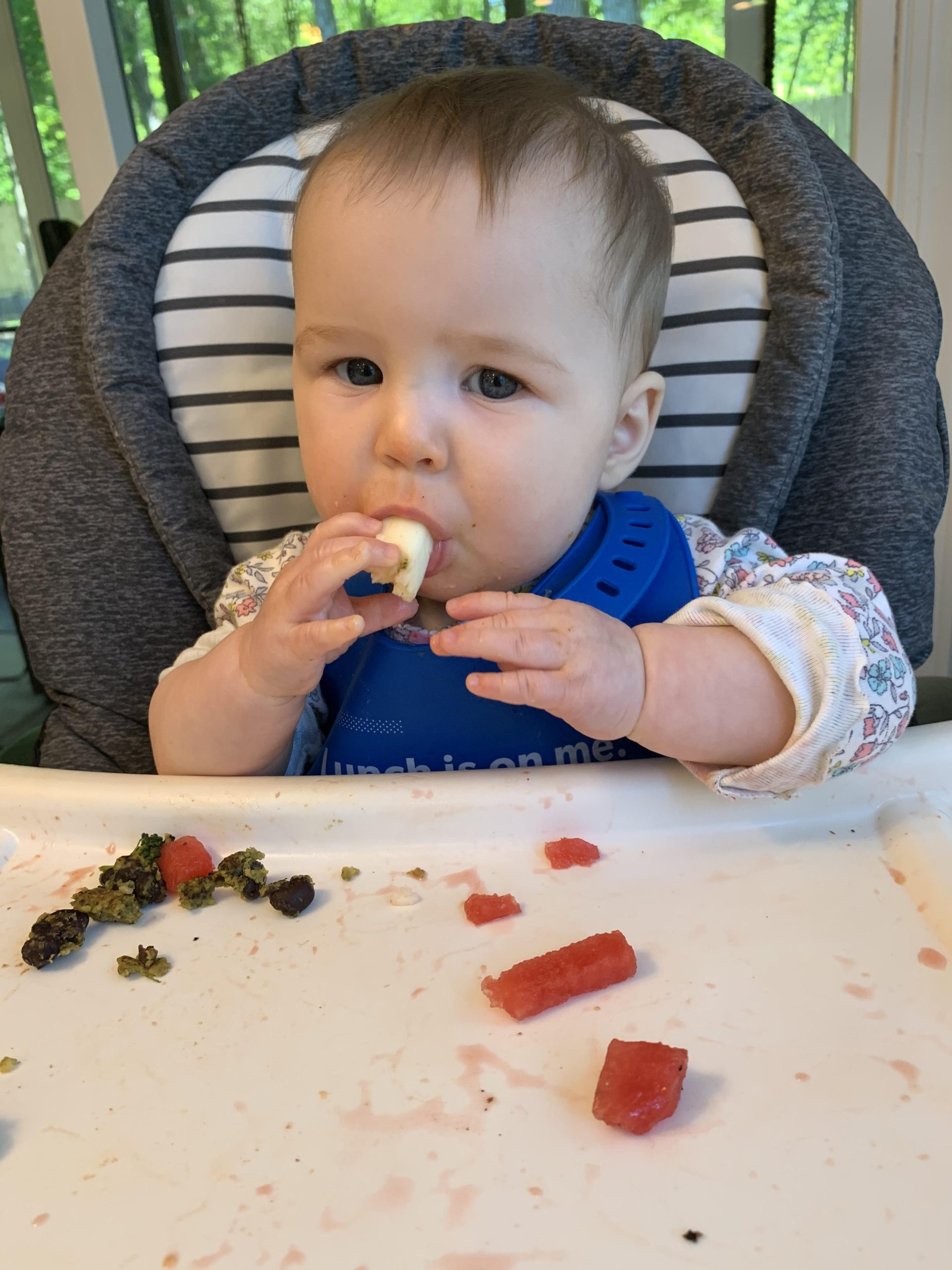
(Image/ Source: reddit.com)
The Heimlich Maneuver is perfect for adults, but what about babies? First of all, you should focus on back blows (you need to apply forceful blows between their shoulder blades) but if this doesn’t work, quickly switch to chest thrusts using two or three of your fingers.
7. Help someone with a broken bone with splints, elevation and cold presses
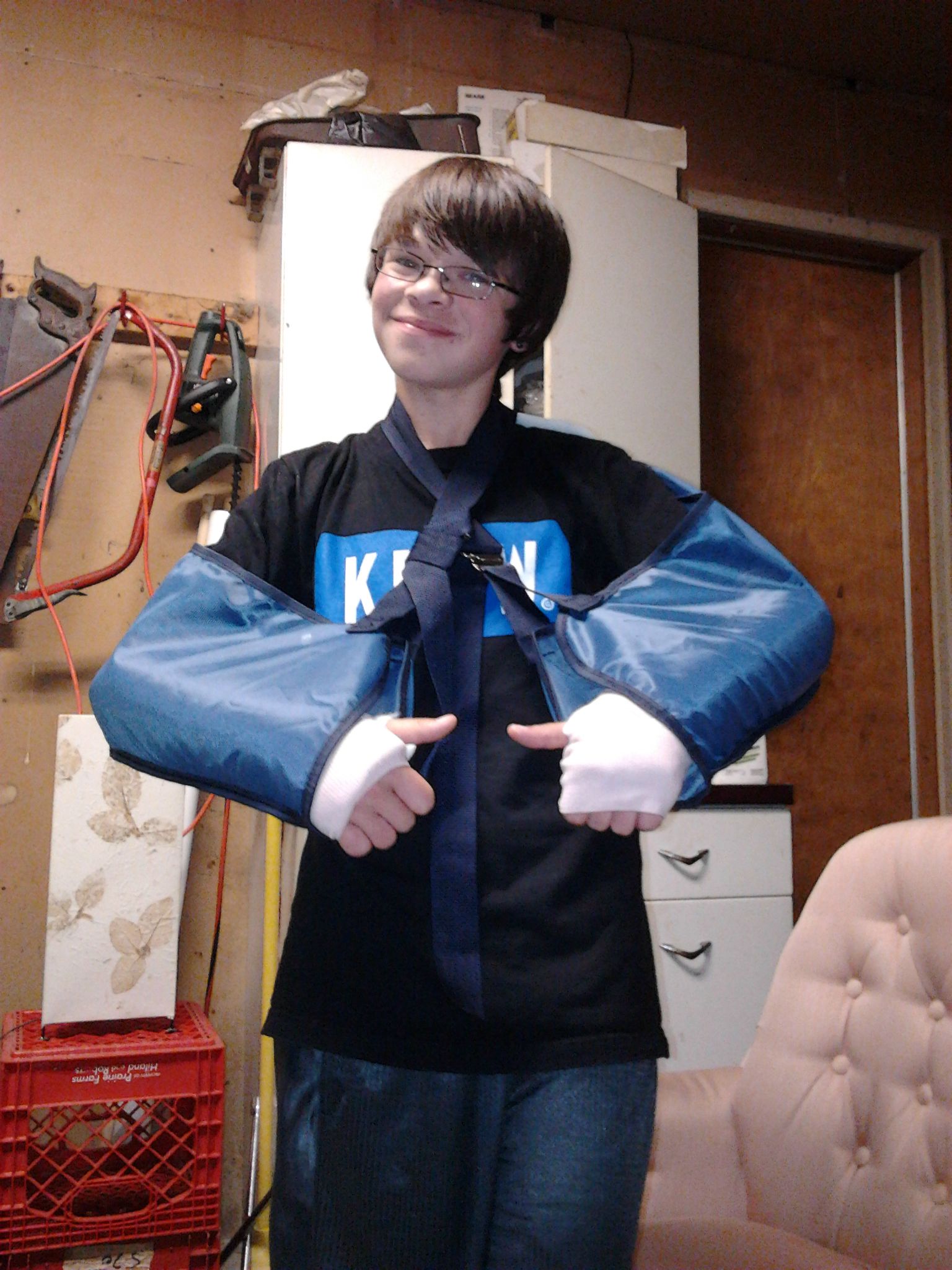
(Image/ Source: reddit.com)
If someone's broken a limb, it’s a good idea to use a splint and some padding to keep it in one place. You should then keep it nice and elevated. We'd also suggest using a cold press on the break, but DON'T put ice directly on the skin, as this can cause tissue damage...
8. Assist someone in trauma by keeping them as still as possible
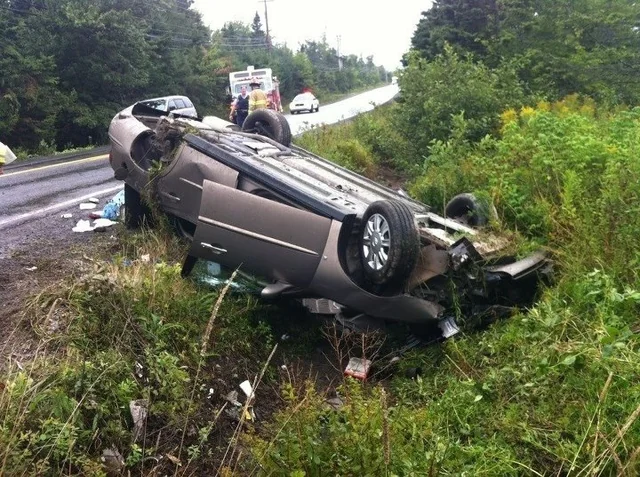
(Image/ Source: reddit.com)
Accidents are super scary. But even if you've witnessed something awful like a car crash, you’ll need to stay as calm as possible. Casualties will probably be experiencing a rapid heart rate and SEVERE anxiety, so be sure to keep them as still as possible if they show signs of trauma.
9. If someone's sprained something, grab some ice
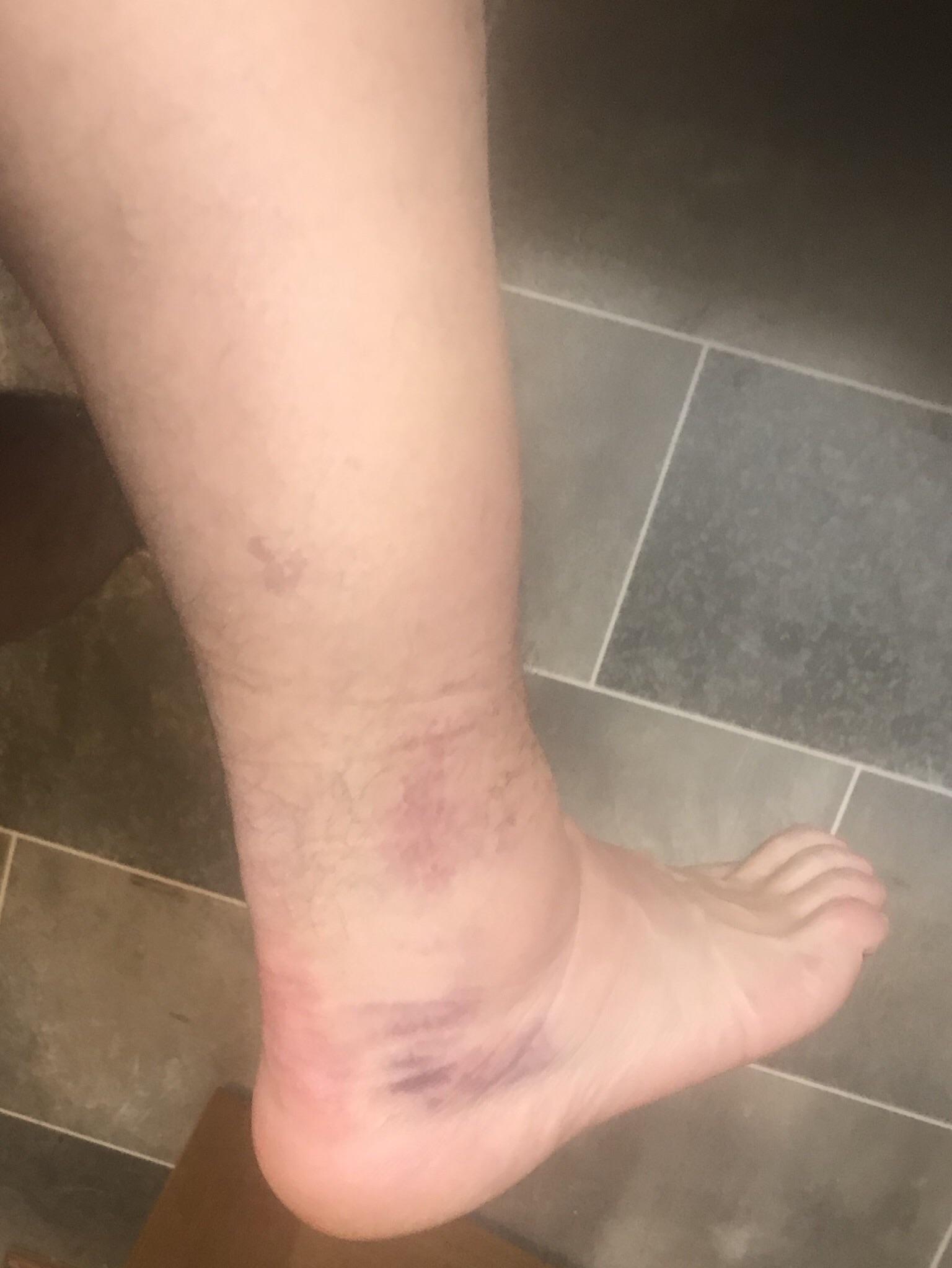
(Image/ Source: reddit.com)
Hands up – who’s ended up spraining or breaking something at some point in their lives? Probably most of us! As sprains and breaks are so common, it’s really good practice to know what to do when these situations happen. Be sure to apply ice to a sprain or break straight away, as this can reduce swelling.
10. Lay a person flat and provide quick medication for Anaphylaxis or anaphylactic shock
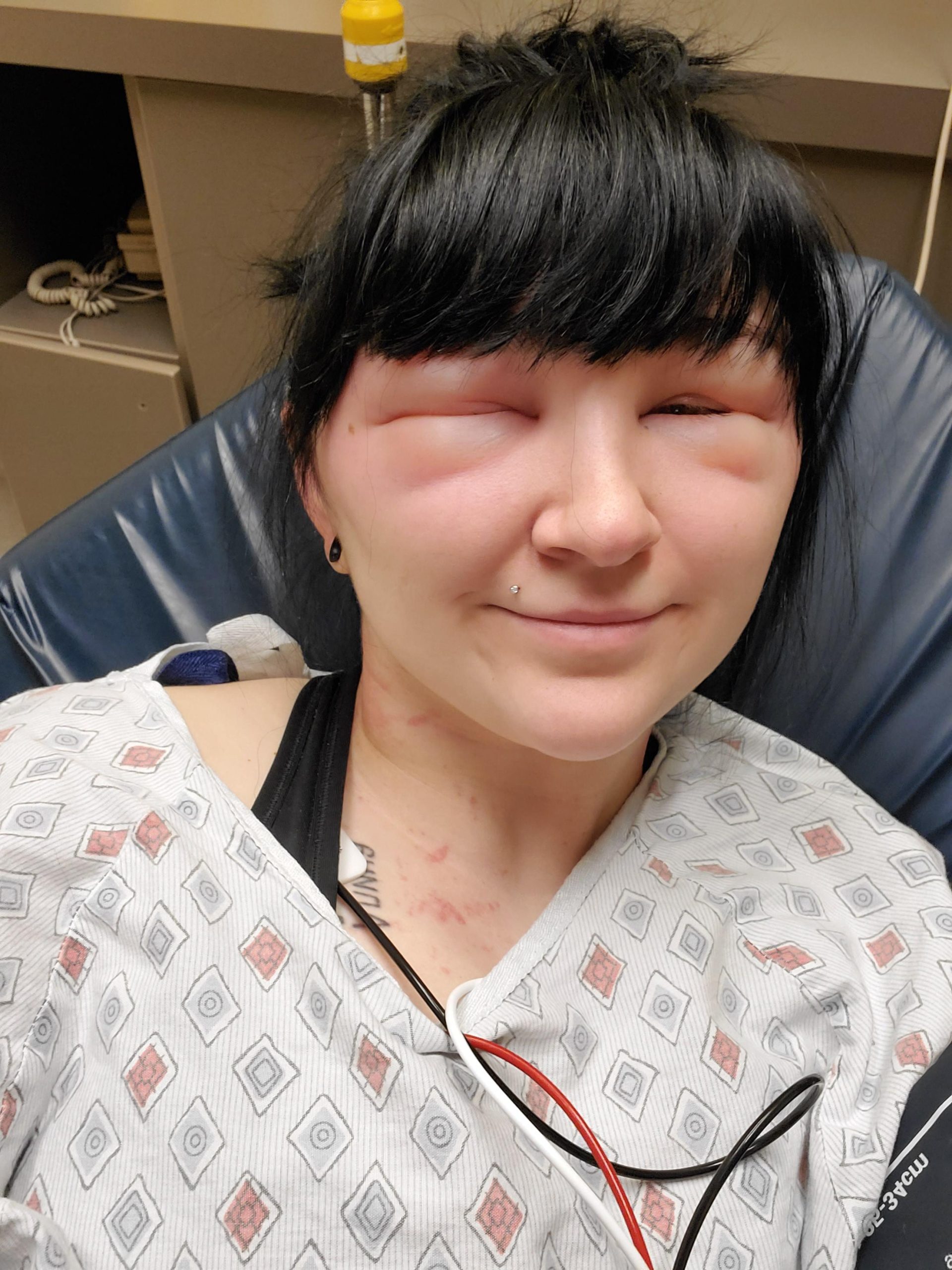
(Image/ Source: reddit.com)
Anaphylaxis or anaphylactic shock basically means a severe allergic reaction. Don't freak out if this happens in front of you; just lie the person flat, and don’t let them stand up or walk around. If they have a known allergy and an adrenaline injector like an EpiPen, don't be squeamish - shoot it straight into their outer thigh.
11. Use the FAST guide if someone is having a stroke
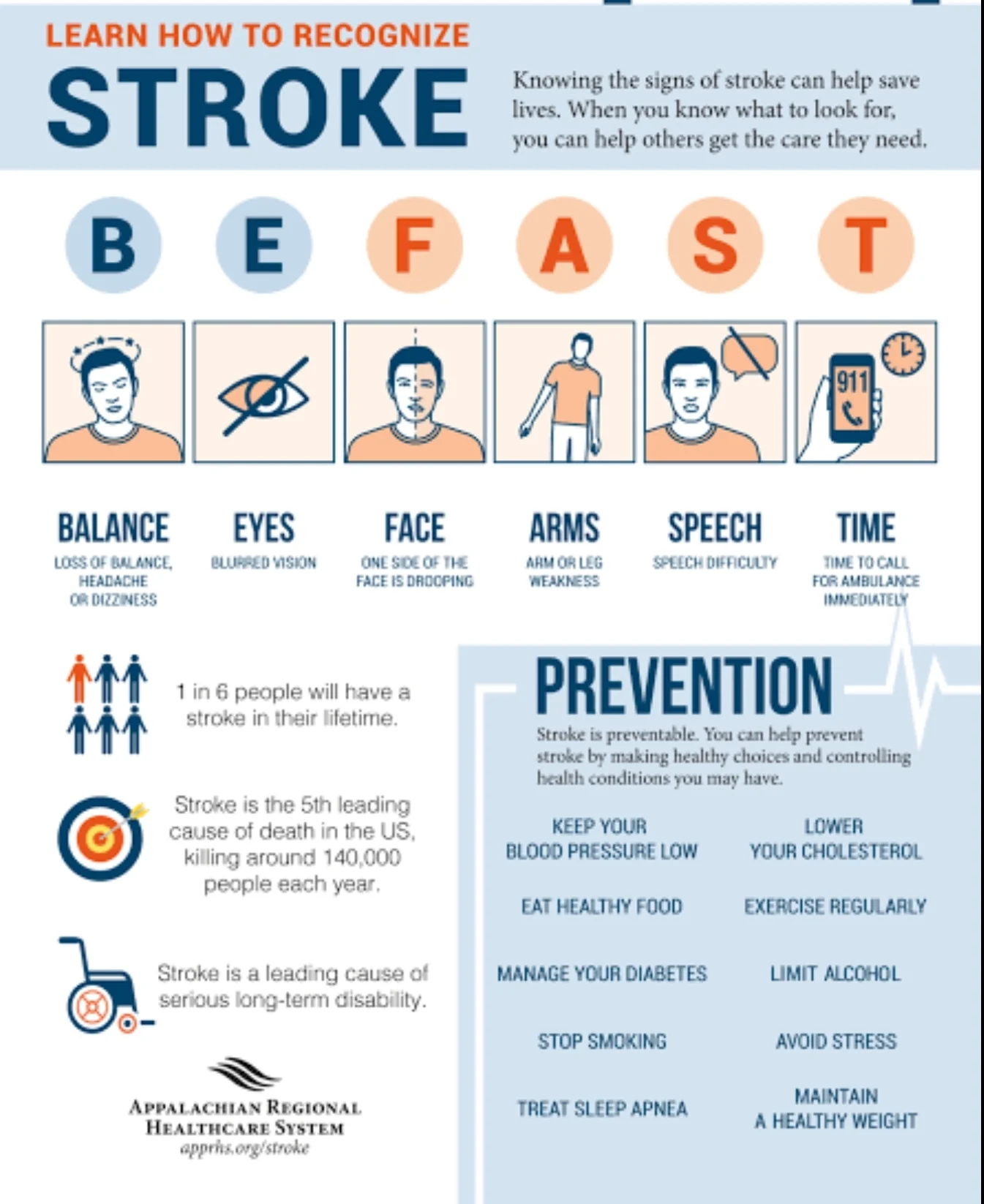
(Image/ Source: reddit.com)
How confident are you at recognizing a stroke? If you need to brush up on your knowledge, read up on the FAST guide, which teaches how to spot the warning signs and get help straight away. Remember that every second counts – the sooner you get help, the bigger the difference it can make.
12. If someone is having a heart attack, put them in a comfortable sitting position

(Image/ Source; reddit.com)
This can make all the difference between life and death. If you think someone’s having a heart attack, spring into action by getting them seated as comfortably as possible (they can even sit on the floor as long as their knees are bent and their head and shoulders are supported) and ring the emergency services straight away.
13. Learn how to put someone in the recovery position if they're unconscious and breathing
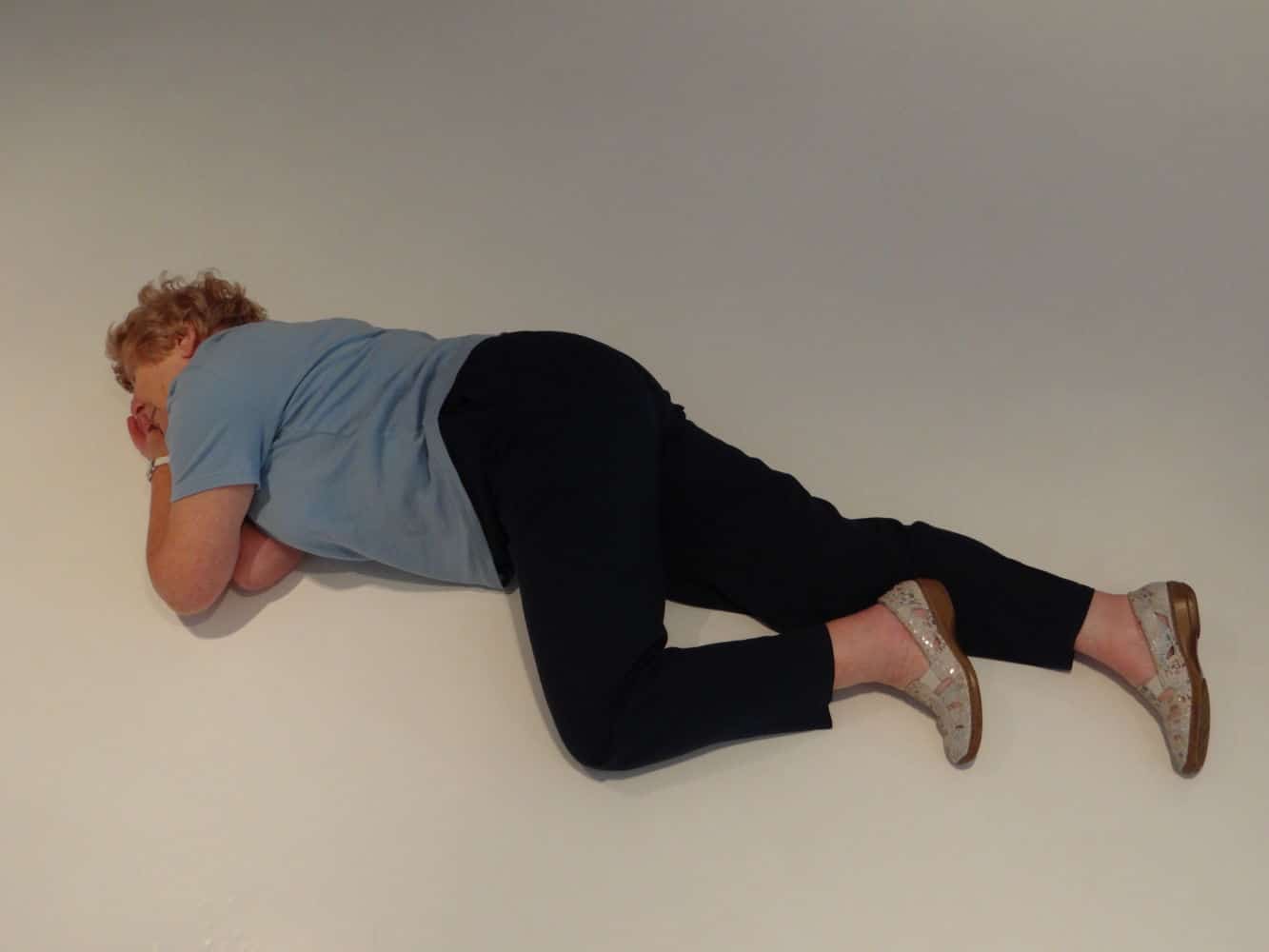
(Image/ Source: firstaidforlife.org.uk)
If you’re confused about when to put someone in the recovery position, remember that you should ONLY do this when someone is unconscious and breathing. When they’re in this state, their muscles go floppy, so it’s important to move them to their side to stop them from choking on their tongue...
14. If you're dealing with someone in a medical emergency, dial 911 first
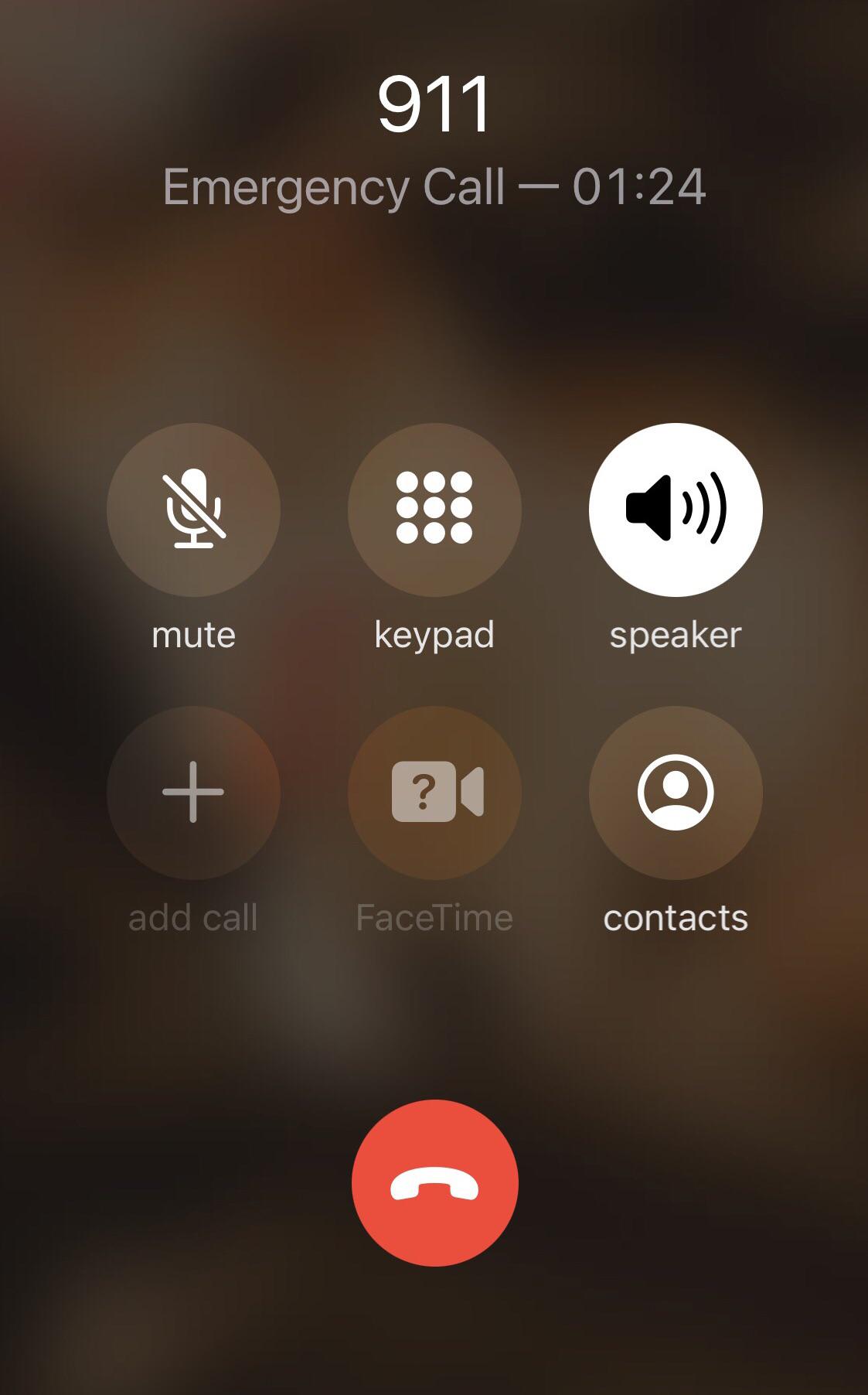
(Image/ Source: reddit.com)
This one might sound really obvious, but you’d honestly be surprised by how many people forget to call 911 first when faced with a medical emergency! People can panic, or go straight into helping the person in trouble without calling for an ambulance. ALWAYS call 911 first so a trained professional can come and help.
15. If someone has severe frostbite, put the affected area in warm water for 20-30 minutes
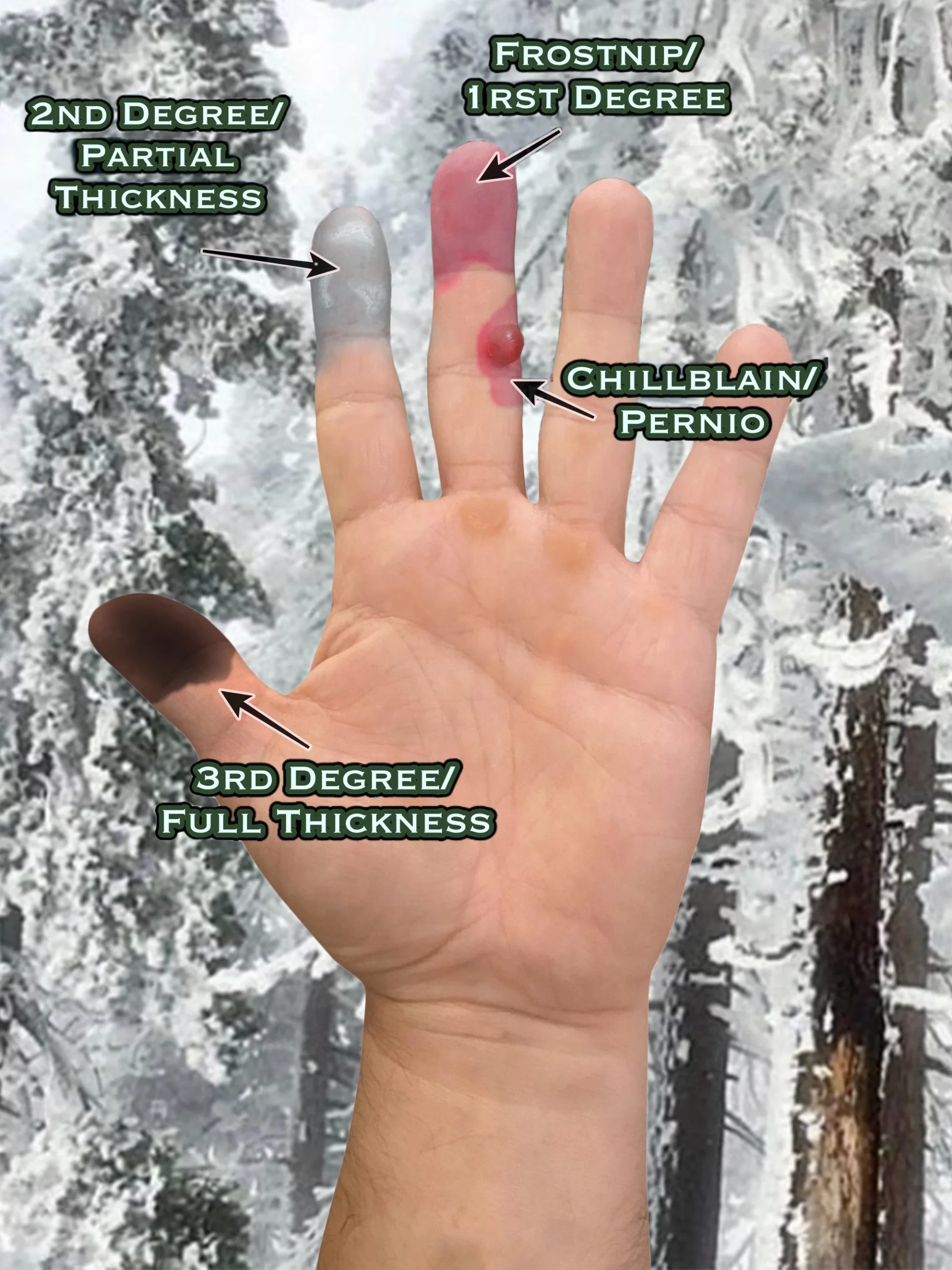
(Image/ Source: reddit.com)
While frostbite needs to be treated by a professional, there are things you can do to help someone while they’re waiting for medical help. Get them out of the cold straight away and put the affected area in some warm water for 20-30 minutes. The temperature of the water should be between 98-105 degrees.
16. If someone has an electric shock, DON'T touch them until the power supply is switched off
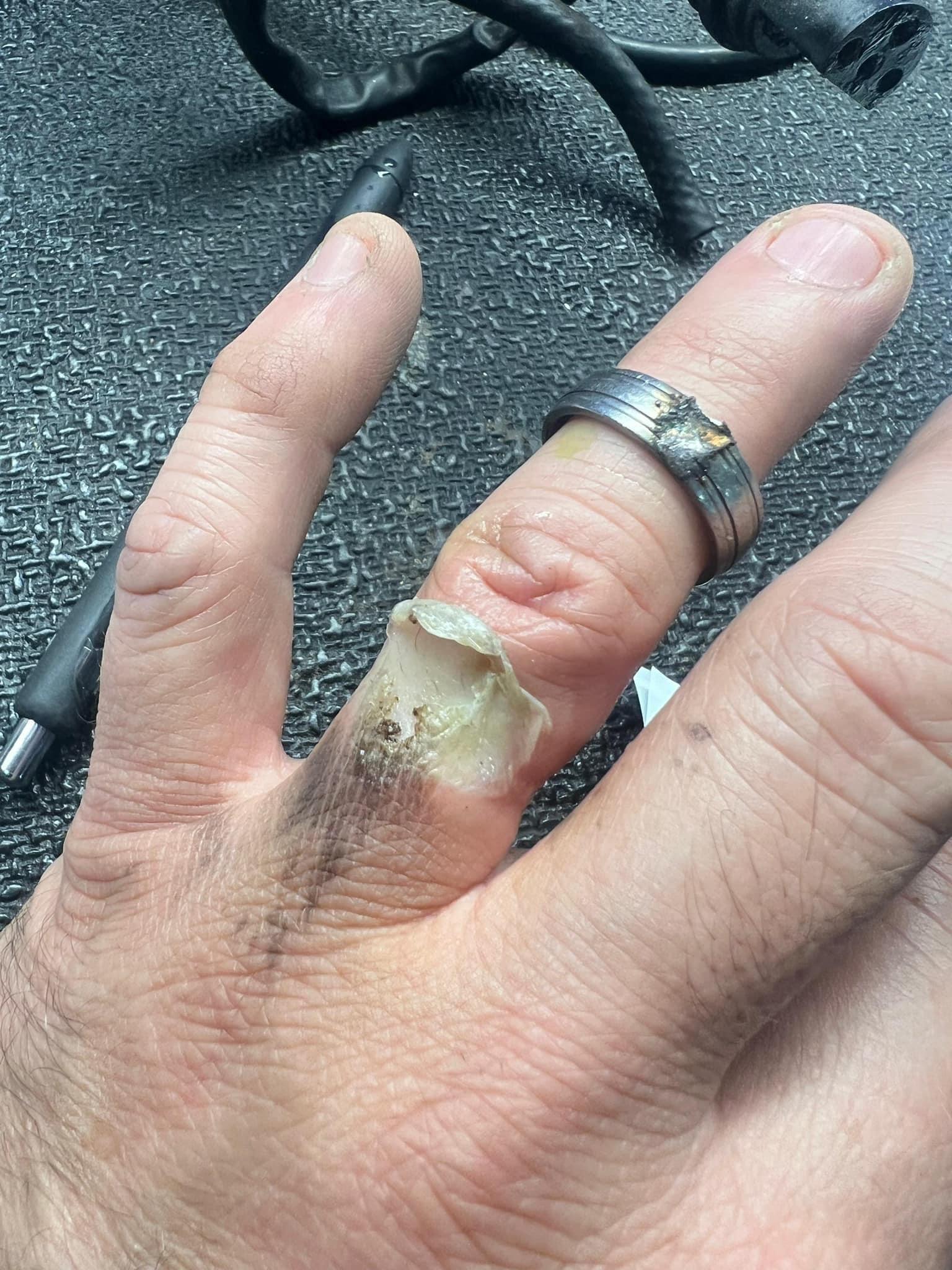
(Image/ Source: reddit.com)
Electric shocks can range from the mild to the super serious. Either way, you should follow the same procedure; DON’T approach the person who’s been electrocuted until the power supply is switched off. This disengages them from the power source. Ring for help ASAP if they’re not conscious.
17. Lean people FORWARD for nosebleeds, not back
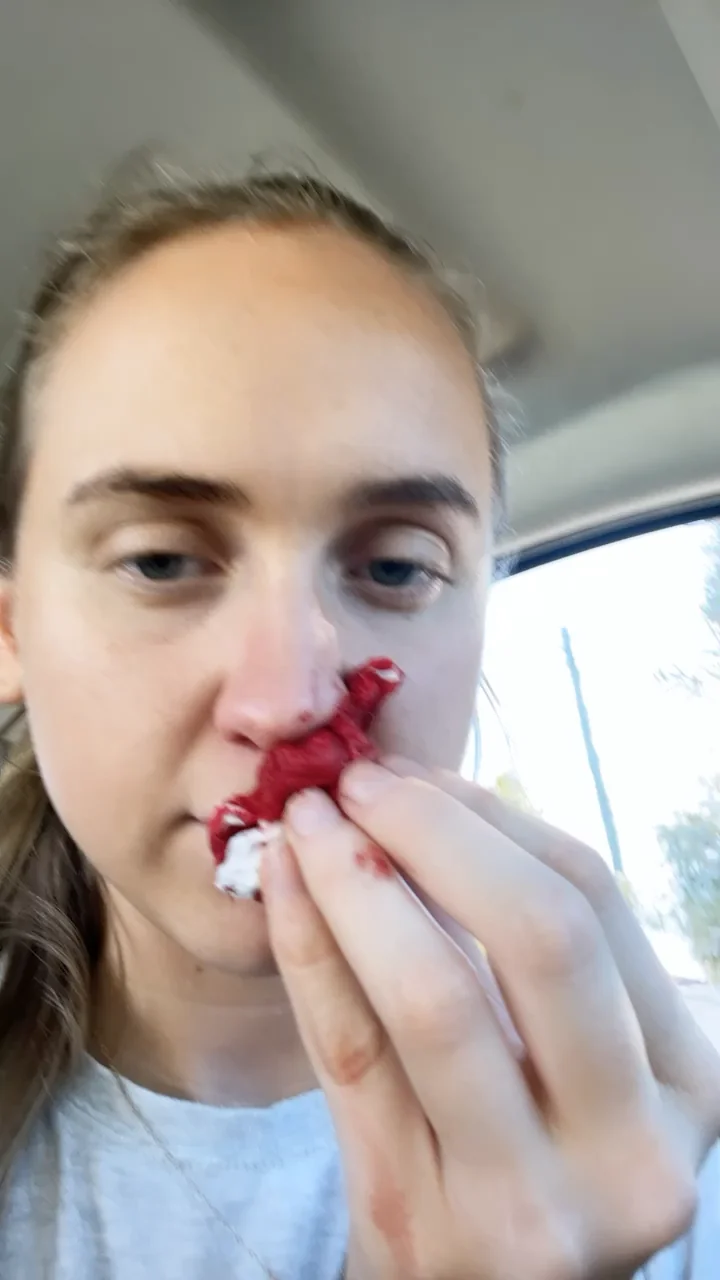
(Image/ Source: reddit.com)
A lot of people tell you to tip your head back when you’ve got a nosebleed, but this is terrible advice – mainly because you can end up choking on your own blood! Be sure to tip the head slightly forward, and pinch the nose at the bridge. This helps stem the flow.
18. If someone is allergic to bee stings, get the stinger out straight away
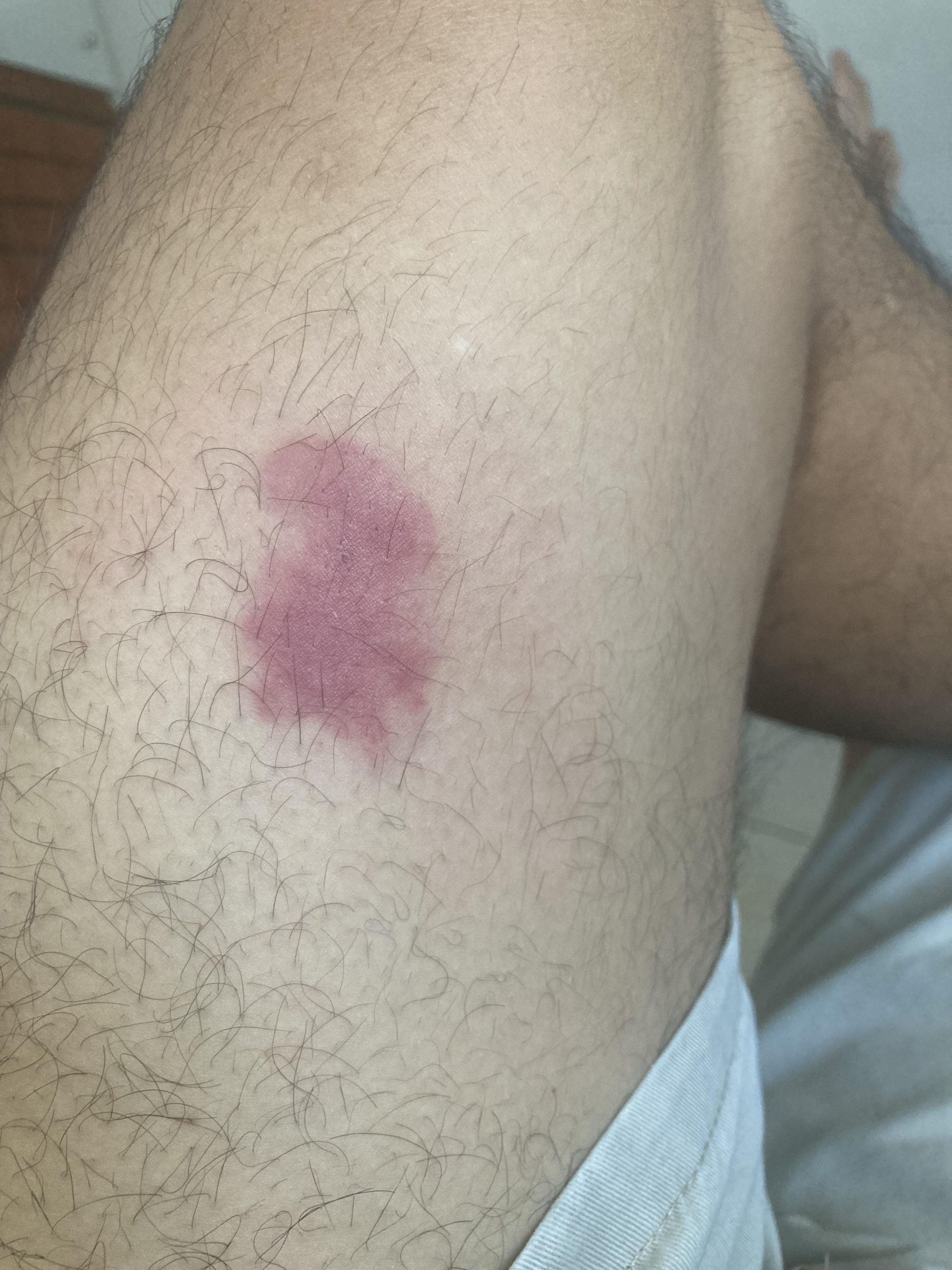
(Image/ Source: reddit.com)
Did you know that an allergy to bee stings can develop at any time? This is why it’s really important to keep an eye out for allergic reactions to stings, even if someone has been fine in the past. If you spot hives, flushing and severe swelling, get the sting out straight away.
19. Remember to check for safety before approaching an injured person
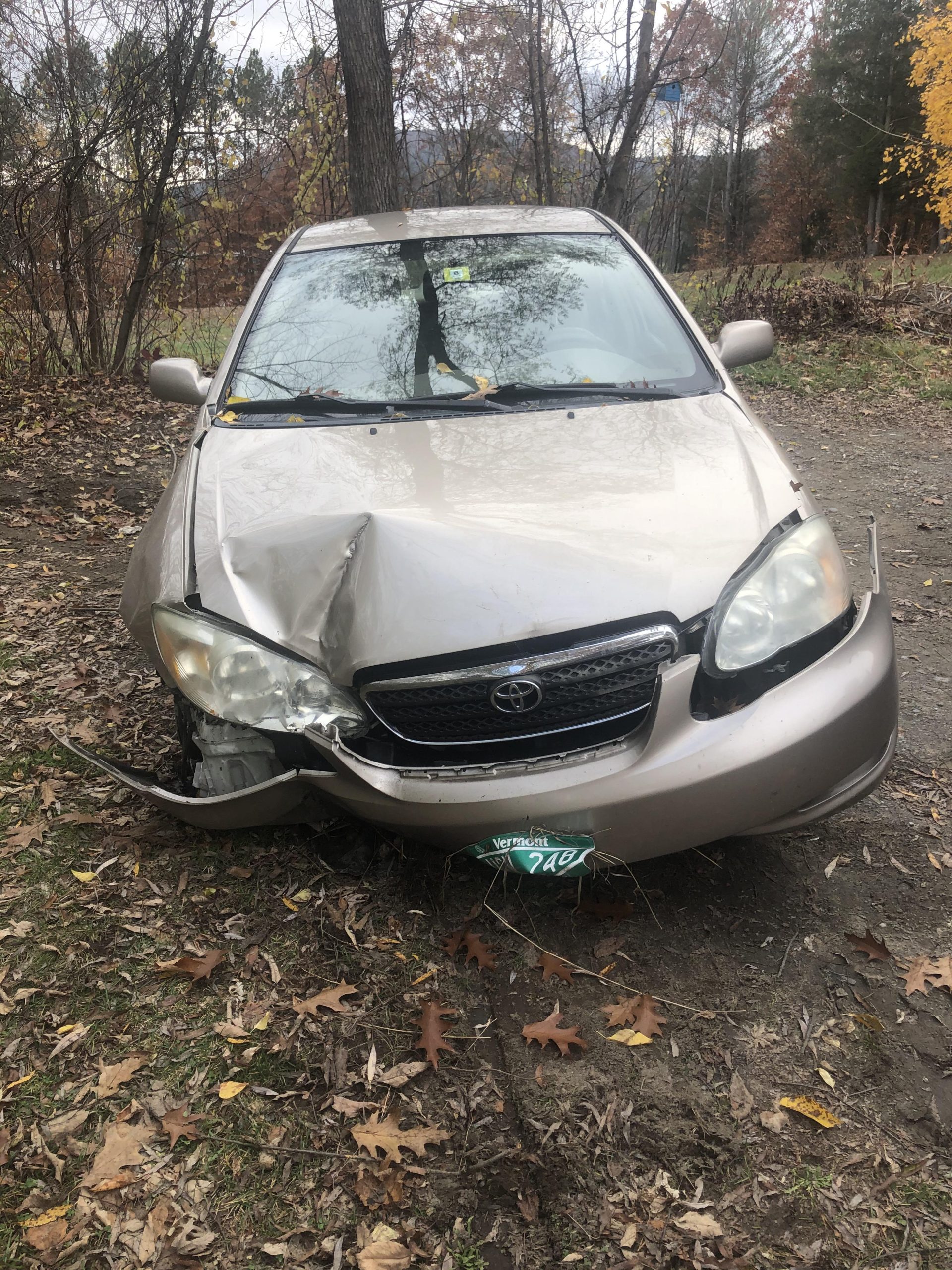
(Image/ Source: reddit.com)
Another obvious point to make maybe, but if you see a car crash, your instinct will be to run over and help – and this might mean you overlooked signs of danger to yourself! Always check it’s safe to approach an injured person, as you might end up needing an ambulance too…
20. Provide lots of reassurance
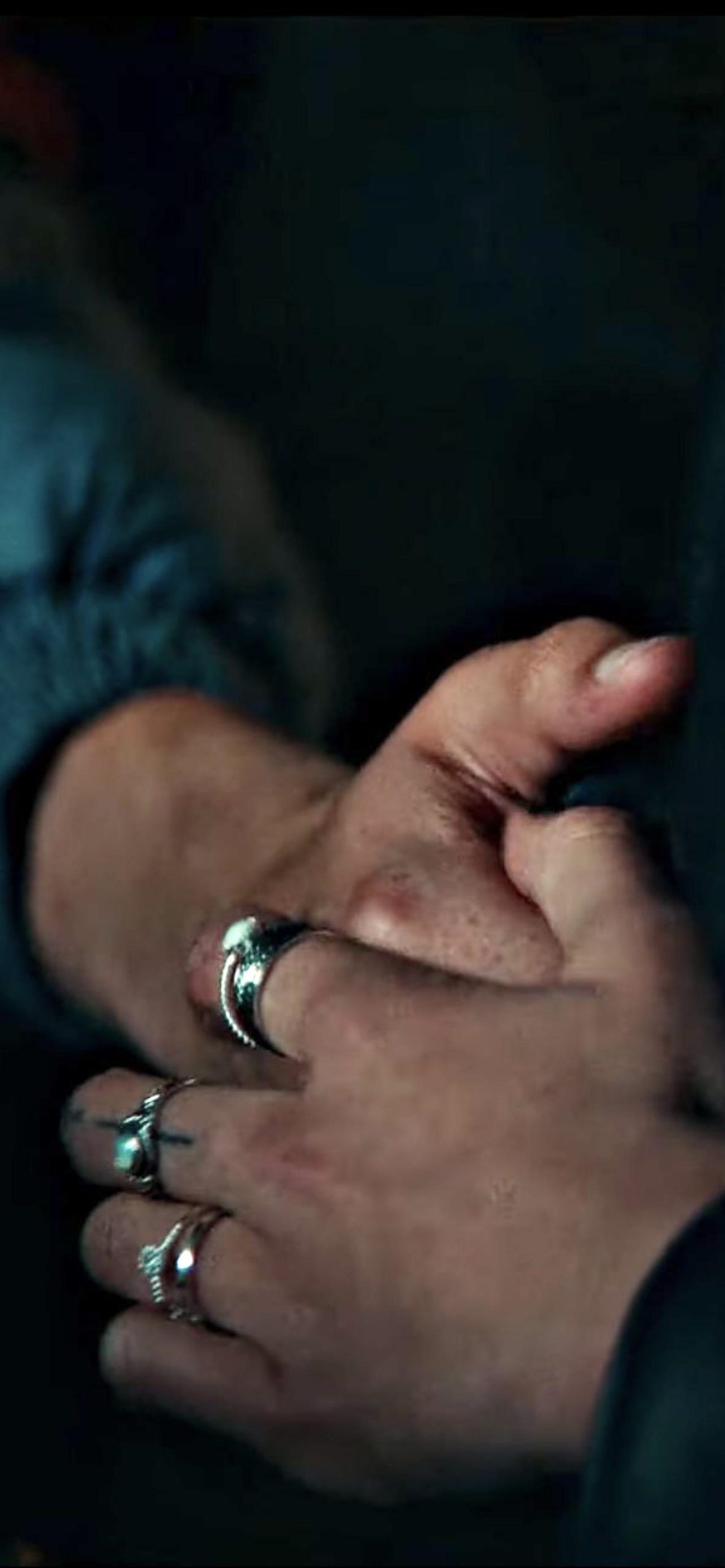
(Image/ Source: reddit.com)
Getting overwhelmed with all the medical training? Well, there’s one thing you definitely CAN do, and that’s provide lots of reassurance to someone who’s gone through a serious accident, trauma or emergency. Remember that it costs nothing at all to be kind.
21. Keep an eye out for anything unusual after a head injury
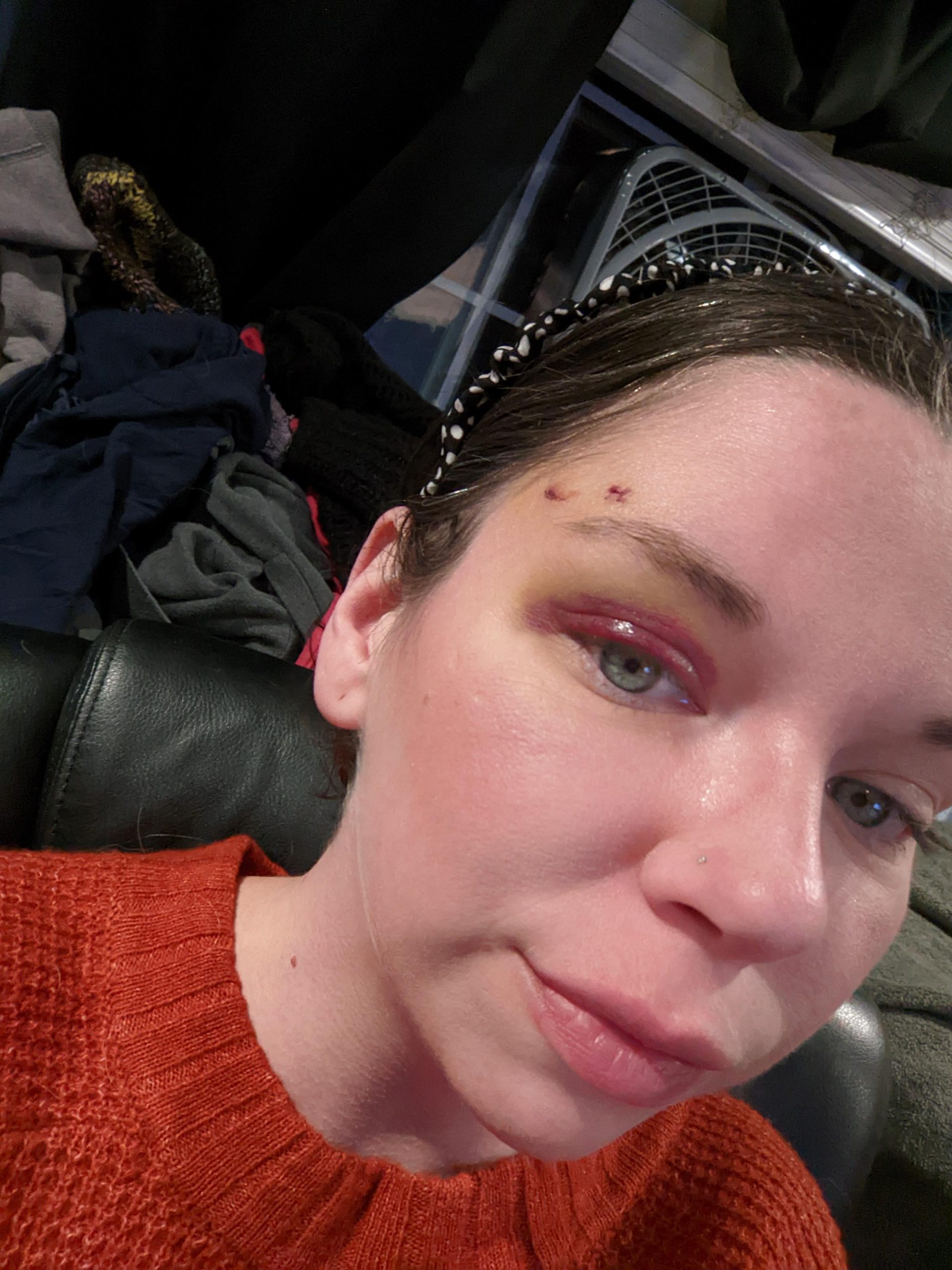
(Image/ Source: reddit.com)
Head injuries are a tricky one. Severe injuries can end up causing damage to the brain, but general bumps on the head aren’t usually that serious. Just keep a super close eye on any unusual signs like confusion, sleepiness and pain. If you’ve got concerns about someone, ring 911 straight away.
22. Keep medical gloves handy
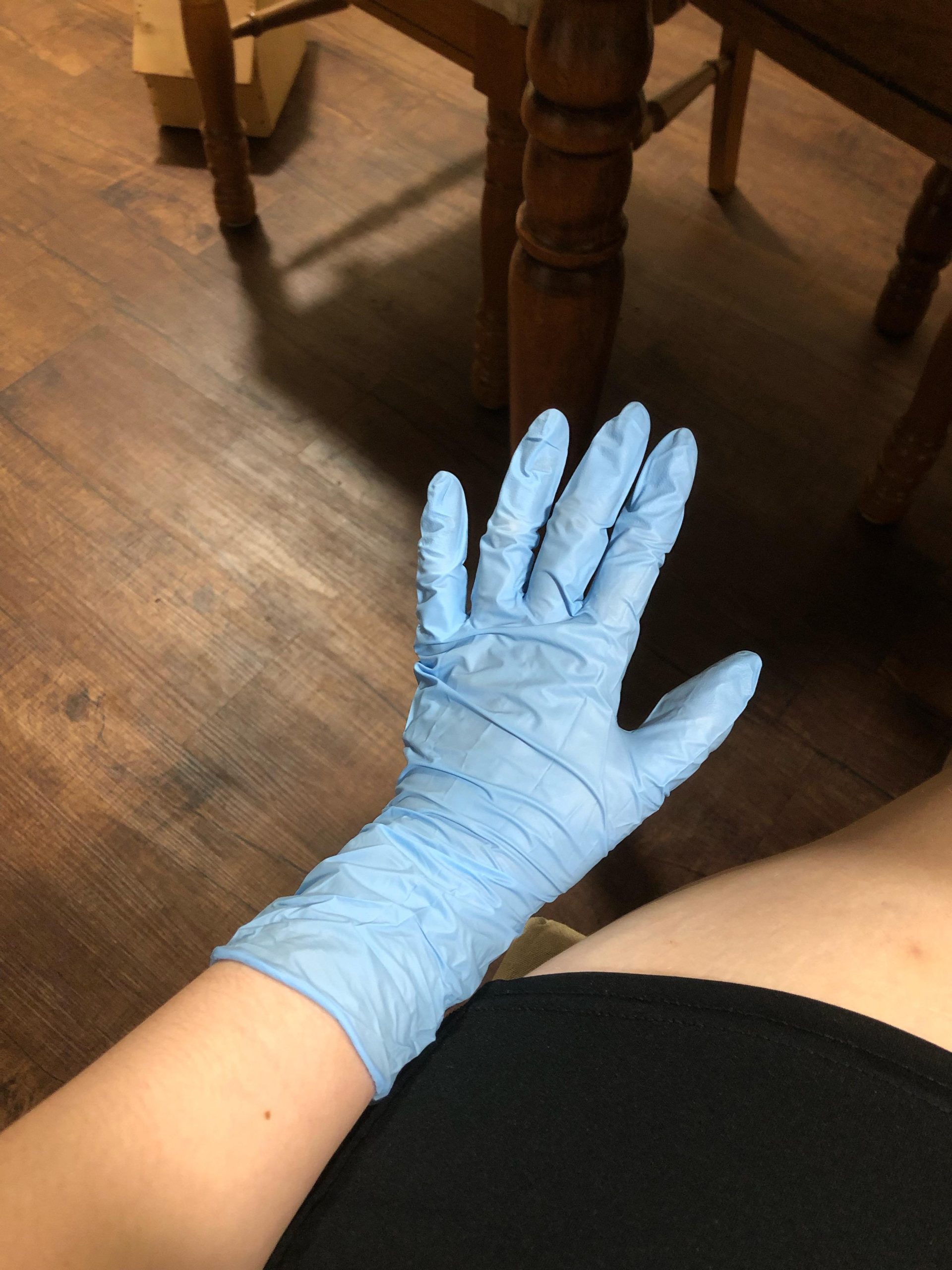
(Image/ Source: reddit.com)
We can’t emphasise this enough; ALWAYS wear medical gloves if you’re giving first aid for things like cuts and bleeding. Why? Because it prevents infections and cross-contamination, and stops you from coming into direct contact with bodily fluids and viruses like AIDs.
23. Treat bumps and bruises with those trusty ice packs
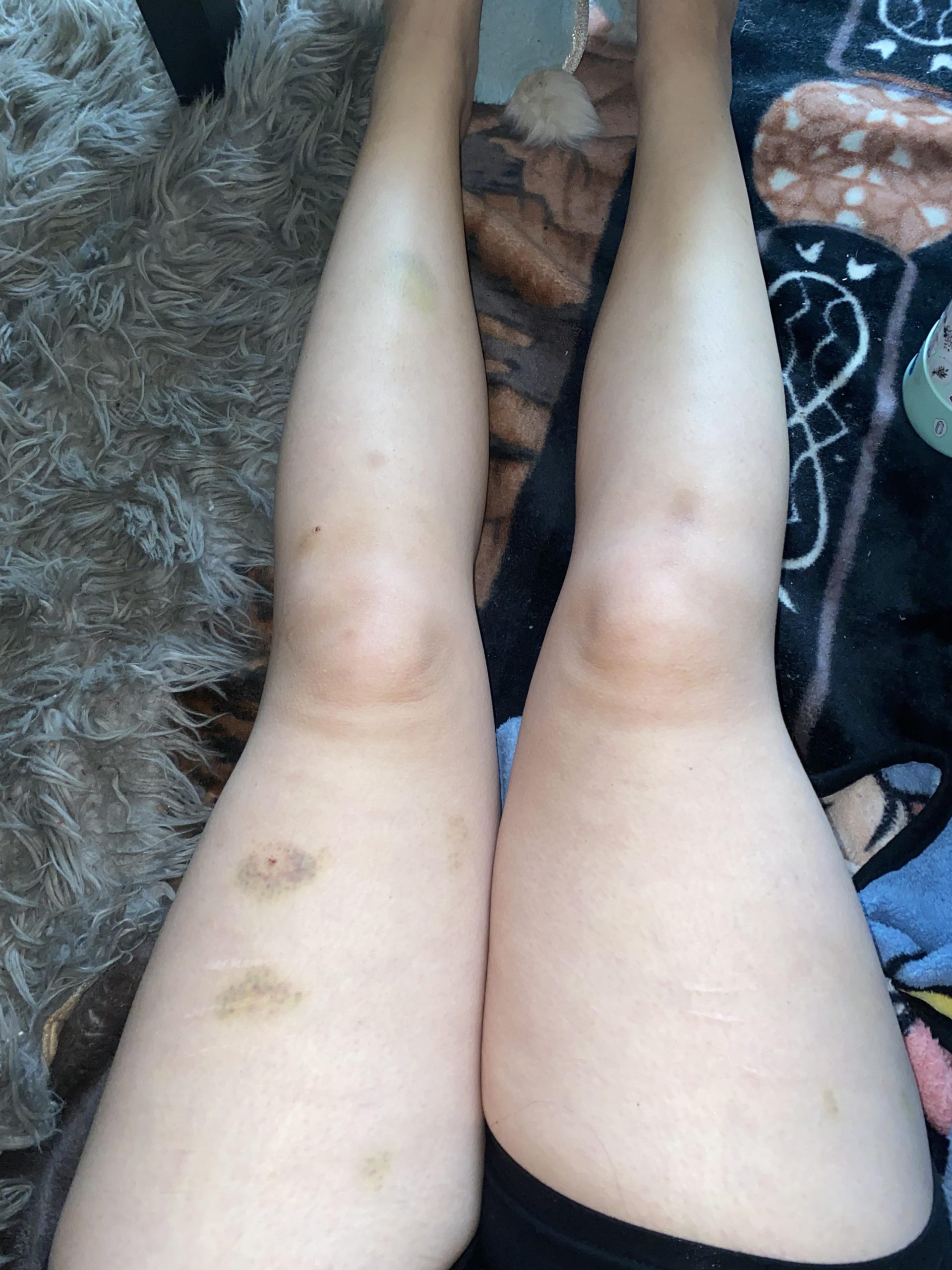
(Image/ Source: reddit.com)
If you’re anything like us, you bruise like a peach – so it’s a really good idea to know how to treat those bumps and unsightly patches. Grab an ice pack and apply for ten minutes at a time to reduce the swelling, and use arnica cream to speed up the healing process.
24. If someone gets a rash from a plant, wash the area and load up on hydrocortisone cream
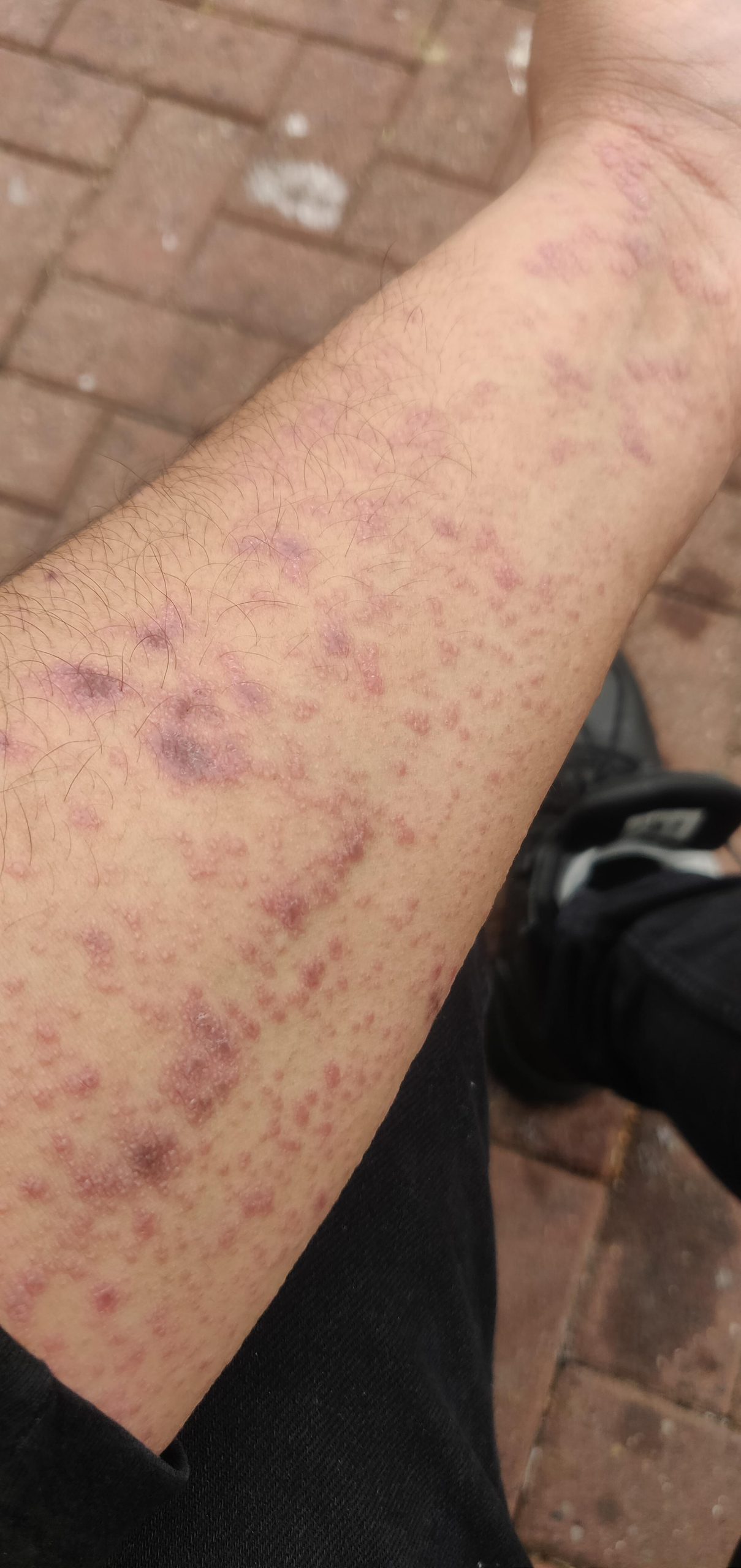
(Image/ Source: reddit.com)
If your family spends a lot of time outdoors, it’s definitely worth learning how to treat plant rashes properly. Whether you’re dealing with poison ivy or sumac, wash the affected skin thoroughly – and wash everything the plant has touched too! You can also apply soothing hydrocortisone cream to the skin.
25. Look after minor scrapes and cuts to prevent infection and scarring
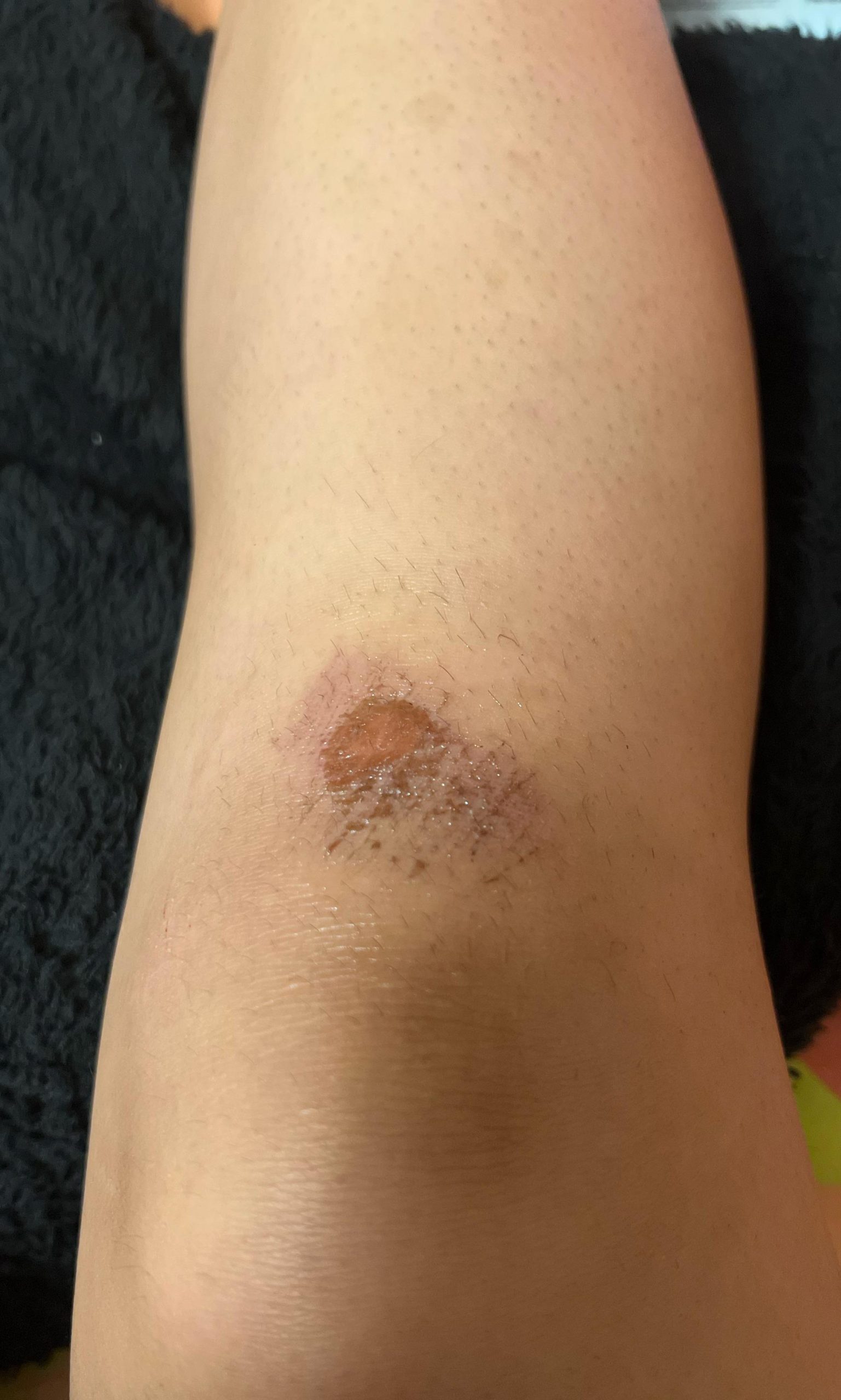
(Image/ Source: reddit.com)
If you’re dealing with kids with scraped knees (or adults who should know better), treating minor cuts and scrapes is a very good skill to learn. Wash your hands before stopping the bleeding with a clean cloth or gauze pad. You can then clean the wound with saline, and remove dirt or debris.
26. Take care of a painful blister with careful drainage
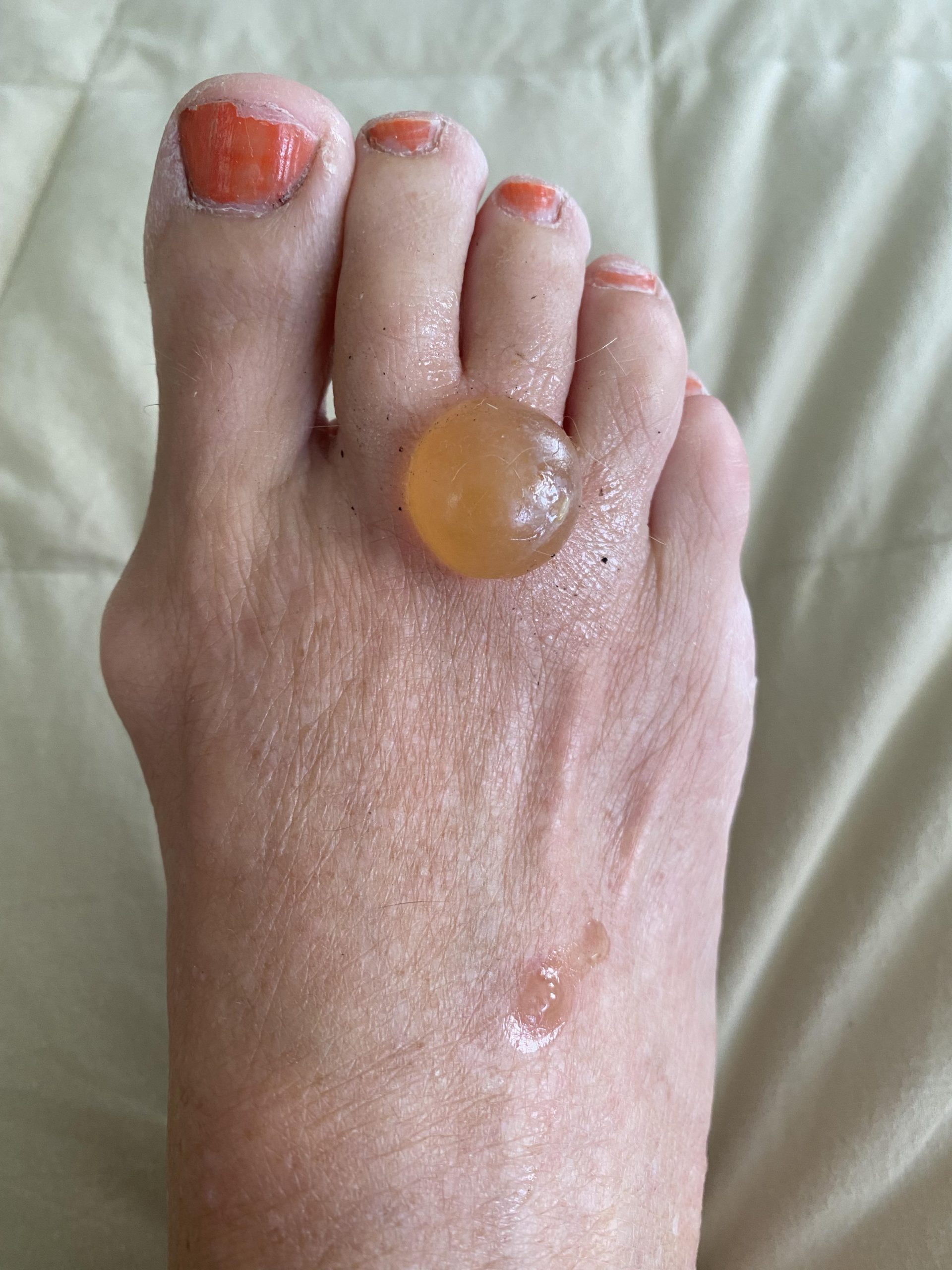
(Image/ Source: reddit.com)
We know a blister isn’t the most serious medical issue in the world, but it’s still a good idea to learn how to drain it properly. Wash your hands and sterilize a needle with alcohol before making small holes at the tip of the blister. Push out the liquid without wanting to throw up before applying antibiotic treatment.
27. Help someone with diarrhea by helping them rehydrate

(Image/ Source: reddit.com)
Okay, so diarrhea isn’t serious for most people, but it can be super dangerous for some. As it leaves the body seriously dehydrated, you should quickly help someone with rehydration medication, which can restore the salts in the body. Be sure to check in with them to see which forms of treatment are safe for them.
29. Remove splinters to prevent infection
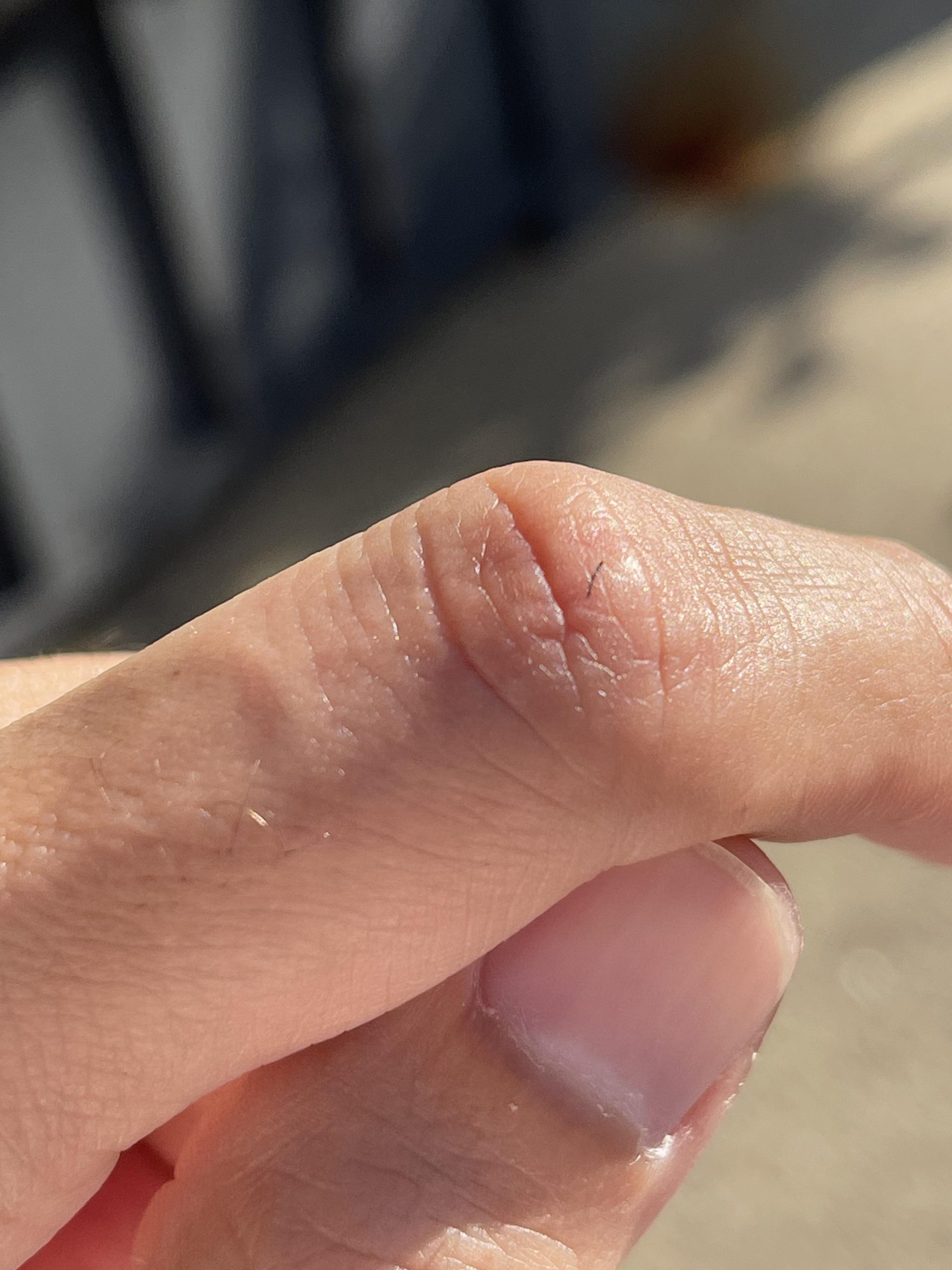
(Image/ Source: reddit.com)
Splinters can be SERIOUSLY annoying and irritating. Plus, they can end up causing infections if they’re not removed properly. Invest in a good pair of tweezers, and dip them in alcohol before using on the splinter. You should pull the splinter out in the same direction it went into your skin.
30. Keep a medical supply kit handy - because you never know when you might need it
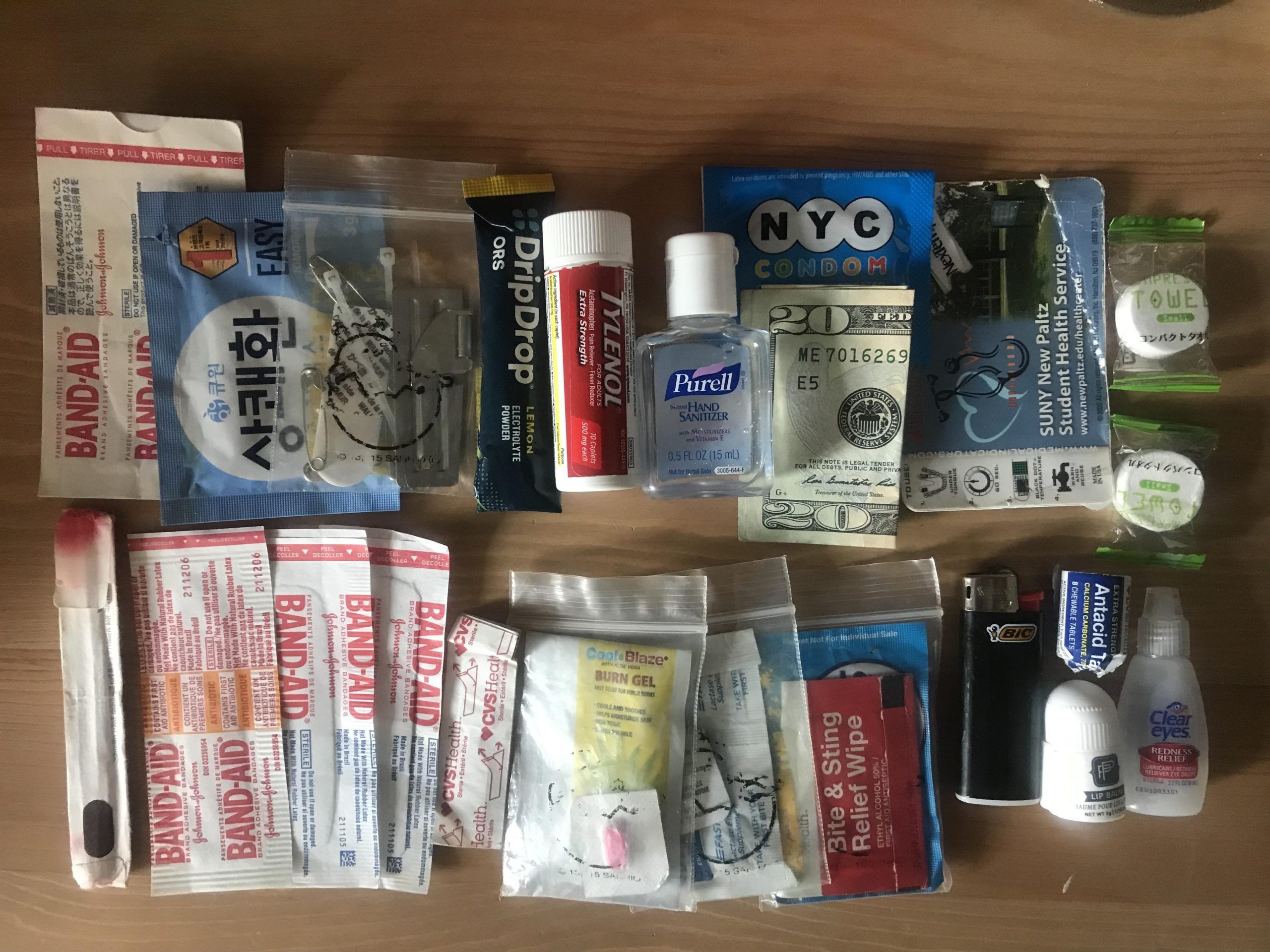
(Image/ Source: reddit.com)
If you’re not already carrying a first aid kit with you, it’s something we’d definitely recommend. While we’re not suggesting that you should carry a ton of medical equipment in your handbag, it’s a really good idea to keep a first aid kit in the trunk of your car.




























